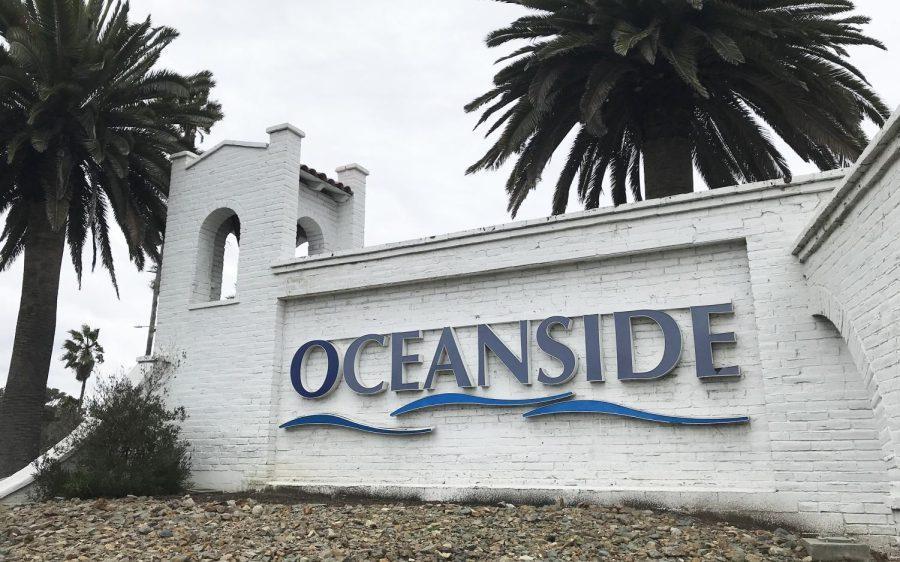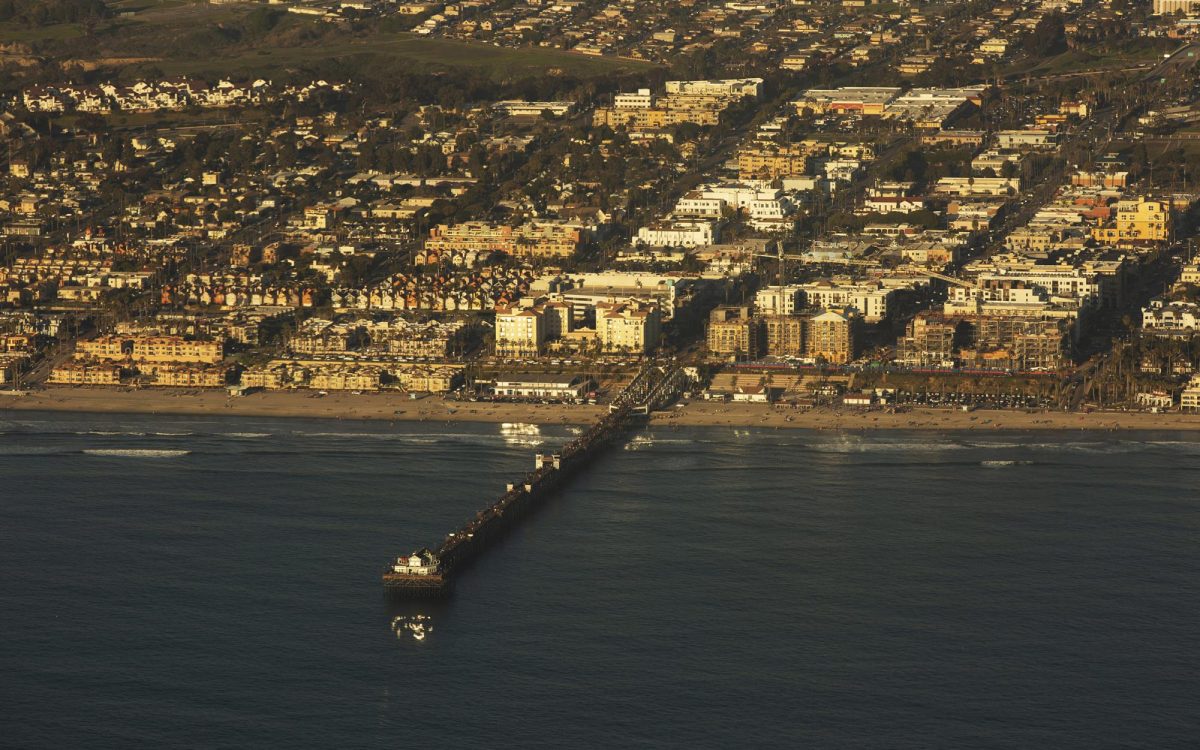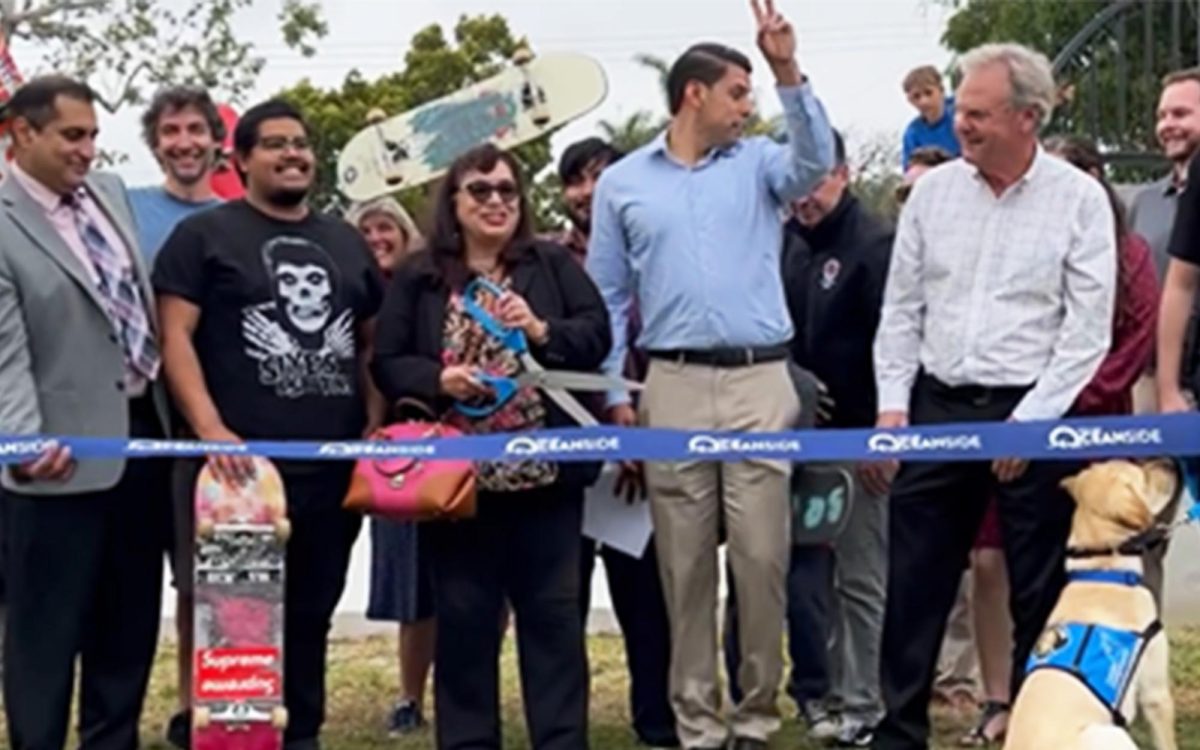November saw a couple of heated topics in the city of Oceanside, with public comments and marijuana policies sparking backlash. The city also tackled rising water rates, electric police cars and the ongoing closure of Lagoon View Drive.
Public backlash over public comments?
Residents can now ban together for group public comments, thanks to a Nov. 1 ruling.
The ordinance allows a group representative to speak for up to 10 minutes. Members must fill out a request-to-speak form, be present when their topic is called, and stay for the full presentation. Groups have at least four people. City laws currently cap individual comments at three minutes. Advanced requests to speak, sent in a week prior, allow up to five minutes. But how did the city get here?
City staff pushed for removing advanced written requests to speak back in October. The proposal angered many residents, with 10 people voicing concerns at an Oct. 18 City Council meeting. The resolution would have limited all public comments to three minutes with no sign-up required.
 Residents strongly opposed this change, accusing the council of silencing freedom of speech and subverting democracy.
Residents strongly opposed this change, accusing the council of silencing freedom of speech and subverting democracy.
“This is our chamber, it’s not your chamber,” resident James Knott said. “We have the right to freedom of speech, we have the right to equal access, we have the right of equal deliberation. If you cut our time, it must be mandatory upon you to cut your time.”
Oceanside resident Richard Newton echoed these views, calling the public forum an “important arena” for making positive change. Newton suggested adding group public comments, citing the Carlsbad City Council as an example.
That resolution was not adopted but ultimately led city staff to draft a plan for including public comments, resulting in this recent ruling.
Weed the people vs. Oceanside
Cannabis dispensaries might be coming to Oceanside, with the council approving up to three licenses for shops.
The decision comes among a heap of cannabis-related policies recommended by city staff, detailing tax structures, zoning laws and approval procedures. One being a controversial lottery system.
If an evaluation is passed, businesses would enter a weighted lottery for a chance to earn a storefront license. Priority would be given to local businesses with trusted experience. One business eyeing that license is MedLeaf, Oceanside’s only cannabis delivery service. MedLeaf currently holds a separate license for deliveries only.
 However, the lottery was first proposed as a completely randomized system, angering MedLeaf owners and employees. Over a dozen workers spoke out against the system, saying it would threaten their business and undermine years of reliable service.
However, the lottery was first proposed as a completely randomized system, angering MedLeaf owners and employees. Over a dozen workers spoke out against the system, saying it would threaten their business and undermine years of reliable service.
“Why are you choosing the unknown?” co-owner Karen Hannawi asked the council. “Why are you leaving it up to chance for some cannabis company under Canada, or some multistate operator out of Michigan, or some random person to win this lotto … this is not a game to us guys, this is our livelihood,” she said.
The backlash led the council to change the lottery and add a license conversion system, with Councilman Rick Robinson calling the current plans “unfair” for local businesses.
The conversion would allow MedLeaf to seamlessly transition from a delivery license to a storefront license, with no lottery system required for them. The weighted lottery, once it’s officially implemented, would give local businesses a leg-up.
The city will be working with a cannabis consultant on implementing the new license program. The council asked staff to come back with a detailed plan in three to six months.
Check out the city staff report to read more about the proposed tax rates and zoning restrictions.
Are police cars going electric?
The council has greenlit a deal between the Oceanside Police Department and a new fleet management company, opening the door to electric police cars.
The council unanimously approved a lease agreement between the OPD and Enterprise Fleet Management, allowing the purchase, leasing and selling of vehicles.
According to a city staff report, 152 existing OPD vehicles will be managed by EFM, including 94 marked and 58 unmarked cars. Officer John McKean said the OPD plans to purchase five fully electric cars, aiming to fully convert its fleet once Oceanside’s infrastructure can accommodate them. Purchase orders may cost up to $2.2 million per fiscal year.
Council keeps Lagoon View Drive closed
Don’t expect Lagoon View Drive to open anytime soon, because the council voted to keep it closed.
The street, spanning under half a mile long, will remain closed for no more than 18 months. However, the unanimous vote also allows up to eight more possible extensions, spanning to 13 1/2 years.
Lagoon View Drive has been closed for over two years, starting in June 2021. According to City Engineer Brian Thomas, the area was closed to protect nearby water from environmental hazards, on top of curbing criminal activity. Illegal dumpings, camping and theft were allegedly common during years prior.
Water rate increase
Oceanside residents will be paying higher water bills for the next two years.
On Nov. 15, the council voted on a 6% increase on water use starting on Jan. 1, 2024, with an additional 6% hitting in 2025. Sewer water rates are raising 4% and 2.5% respectively.
Owen Pratt is a freelance writer in the region.





